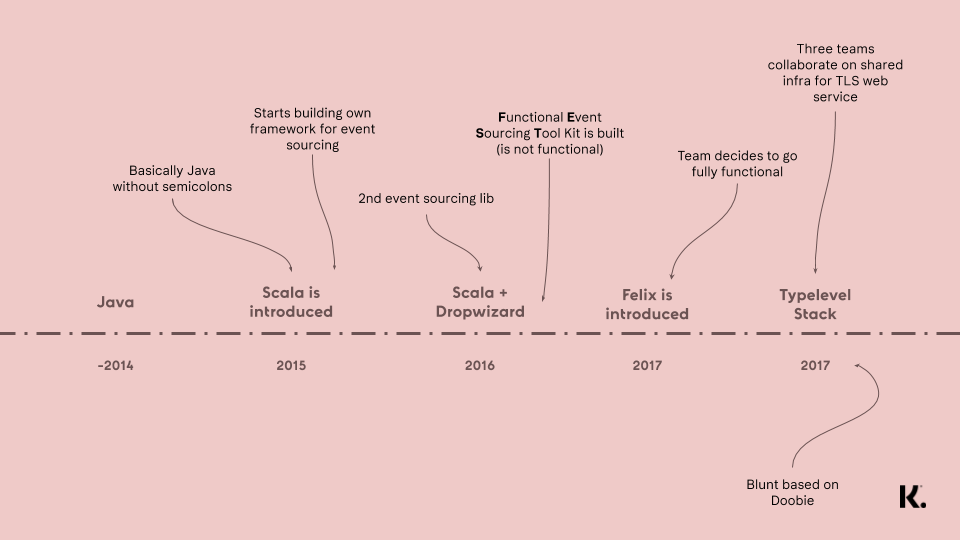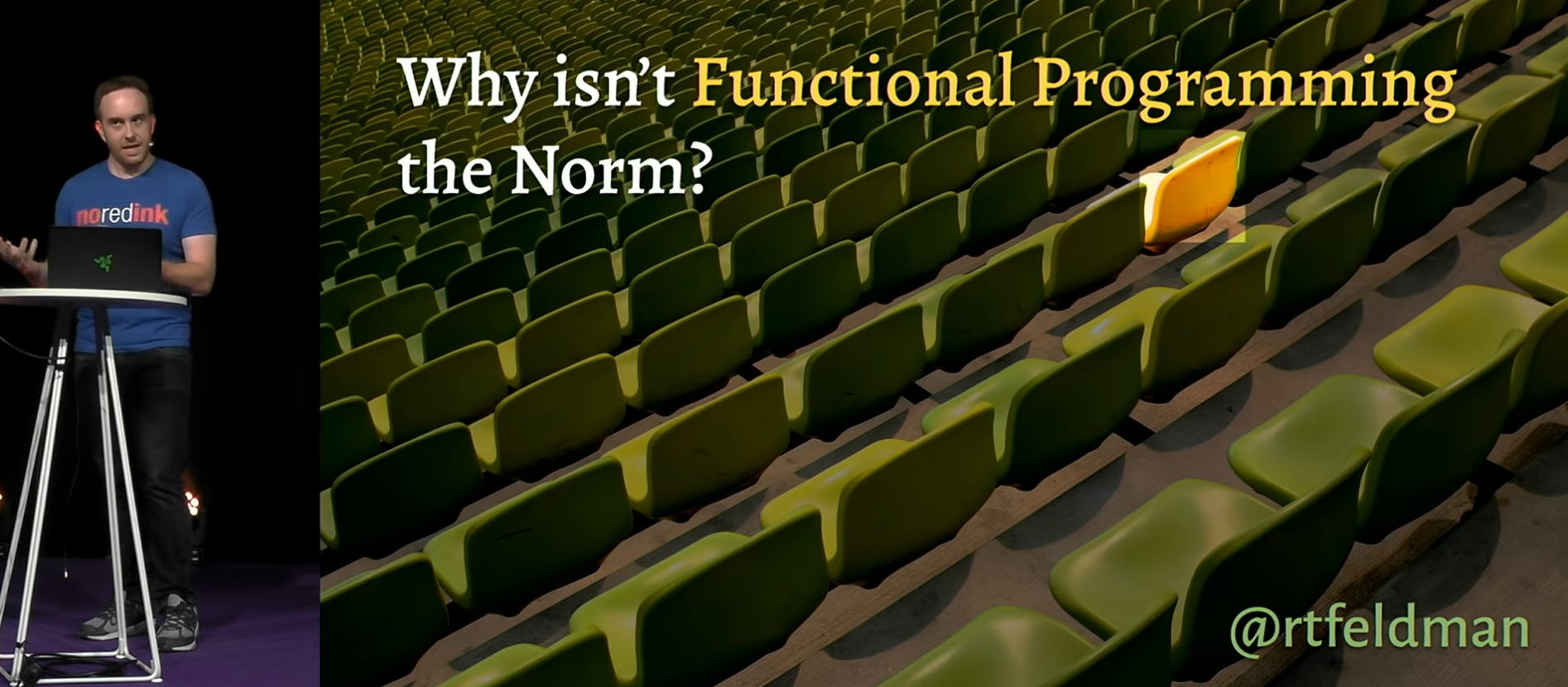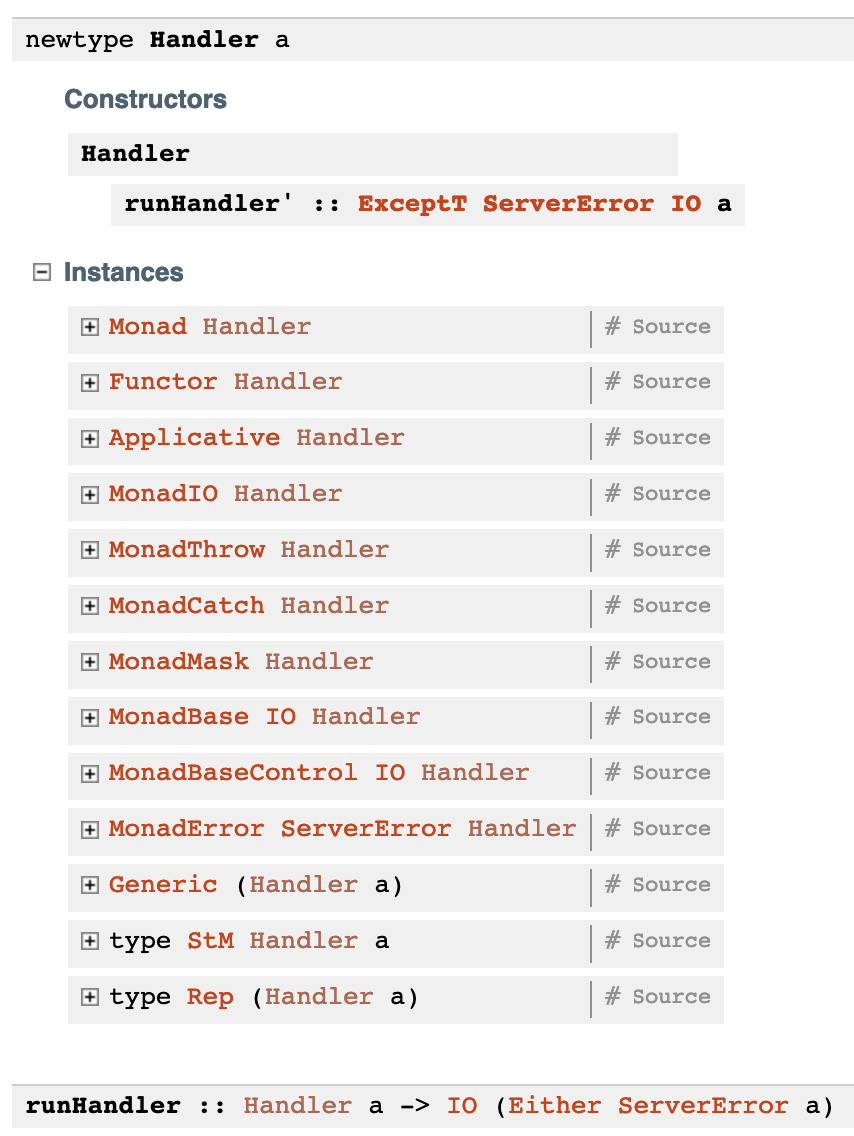@felixmulder
Haskell in Production
Services at Klarna written in Haskell
Why Haskell?

We loved functional, but 💔 Scala
So, Haskell.
What Haskell is, and what it isn’t.
Common misconceptions
Common misconceptions
- Reading Haskell code is hard
Common misconceptions
- You need to understand the m-word
Common misconceptions
- Haskell is slow
Common misconceptions
- The libraries you want don’t exist
Common misconceptions
- The tooling you want doesn’t exist
Common misconceptions
- You need a PhD to get anything done
Common misconceptions
- Writing features is slow
None of these are inherently true.
Some of them can be.
Honestly it’s the same for Erlang.


Leaving the Ivory Tower
From the Ivory Tower to the Happy Island
- Learning resources
- Inclusive community
- User-friendly libraries
- Golden path
Golden Path
- Language
- Libraries
- Tools
- Patterns
Haskell at Klarna
We’re not officially supporting it.
Yet.
Our Haskell stack
Libraries
servantpostgresql-simple (+ opalaye)hedgehog
Servant
A set of packages to declare web APIs on the type-level
type GetPet
= "pets" :> Capture "petId" PetId :> Get '[JSON] Pettype GetPet
= "pets" :> Capture "petId" PetId :> Get '[JSON] Pet
type PostPet
= "pets" :> Capture "petId" PetId :> Post '[JSON] NoContent
:> ReqBody '[JSON] Pettype GetPet
= "pets" :> Capture "petId" PetId :> Get '[JSON] Pet
type PostPet
= "pets" :> Capture "petId" PetId :> Post '[JSON] NoContent
:> ReqBody '[JSON] Pet
type PetAPI
= GetPet
:<|> PostPet
:<|> DeletePetBut that’s not the best part of servant.
Types can actually give you much more.
- Statically defined OpenAPI
- Statically defined documentation
- Clients for free in both Haskell and JavaScript!
- Mock an entire server from the type!
OpenAPI
type PetApi = ...
petApiSwagger = encode $ toSwagger $ Proxy @UserApiOpenAPI
type PetApi = ...
petApiSwagger = encode $ toSwagger $ Proxy @UserApi
-- error:
-- • No instance for (ToSchema Pet)
-- arising from a use of ‘toSwagger’
-- • In the second argument of ‘($)’, namely
-- ‘toSwagger $ Proxy @GetPet’
-- In the expression: encode $ toSwagger $ Proxy @GetPet
-- In an equation for ‘swaggy’:
-- swaggy = encode $ toSwagger $ Proxy @GetPetOpenAPI
data Pet = Pet
{ name :: Text
, age :: Int
}
deriving (Generic)OpenAPI
data Pet = Pet
{ name :: Text
, age :: Int
}
deriving (Generic)
instance ToSchema PetOpenAPI
type PetApi = ...
petApiSwagger = encode $ toSwagger $ Proxy @UserApi
-- { "swagger": "2.0", ... }Clients - Haskell
type PetApi = ...
getPetClient :: PetId -> ClientM Pet
postPetClient :: PetId -> Pet -> ClientM NoContent
getPetClient :<|> postPetClient = client (Proxy @PetApi)
getPet :: ClientEnv -> PetId -> IO (Either ClientError Pet)
getPet env petId = runClientM (getPetClient petId) envClients - JS
import Servant.JS (jsForApi)
import Servant.JS.Axios (axios)
type PetApi = ...
jsCode :: String
jsCode = jsForApi (Proxy @PetApi) axiosDocumentation
apiDocs :: String
apiDocs = _ $ docs $ Proxy @PetApiDocumentation - markdown!
apiDocs :: String
apiDocs = markdown $ docs $ Proxy @PetApiDocumentation - pandoc!
apiDocs :: String
apiDocs = _ $ pandoc $ docs $ Proxy @PetApiAsciiDoc, CommonMark, ConTeXt, Custom, Docbook, Docx, DokuWiki, EPUB, FB2, HTML, Haddock, ICML, Ipynb, JATS, Jira, LaTeX, Man, Markdown, Math, MediaWiki, Ms, Muse, Native, ODT, OOXML, OPML, OpenDocument, Org, Powerpoint, RST, RTF, Shared, TEI, Texinfo, Textile, XWiki, ZimWiki
Mocked server
petGen :: Gen Pet
= Pet
<$> choice [ "Diddy", "Tupac" ]
<*> Gen.int (Range 0 10)Mocked server
import Servant.Mock
petApi :: Proxy PetApi
petApi = Proxy
main :: IO ()
main = run 8080 $ serve petApi (mock petApi Proxy)Property based integration tests
import Hedgehog.Servant
genApi :: Gen (BaseUrl -> Request)
genApi = genRequest (Proxy @PetApi) (genPet :*: GNil)
<100 LOC
So far, we haven’t written a single line of implementation code.
Other integrations
- SwaggerUI
- Other language clients:
- Purescript
- Elm
- Kotlin
- Python
- C#
- Ruby
- Checked exceptions
type GetPet
= "pets" :> Capture "petId" PetId :> Get '[JSON] PetgetPet :: PetId -> Maybe PetgetPet :: PetId -> Maybe PetgetPet :: PetId -> Maybe Pet
-- Which we'll translate to:
getPet :: PetId -> Handler PetSo, what’s a Handler?
Yes, it’s an m-word.
Handler

pets :: Map PetId Pet
pets = Map.fromList
[ ("cat", undefined)
, ("dog", undefined)
]
getPet :: PetId -> Handler Pet
getPet petId =
case Map.lookup petId of
Just pet -> return pet
Nothing -> throw404Putting it all together
apiHandler :: Server PetApi
apiHandler
= getPet
:<|> postPet
main :: IO ()
main
= run 8080
$ serve (Proxy @PetApi) apiHandlersIn summary
Getting stuff done is quick, and sans footguns
We’re really happy with what Haskell offers us
Klarna is hiring
Build the next generation of banking using FP
- Internal TheKonferen.se
- External conference of choice
- Smoooth Lambdas - Category Theory study group